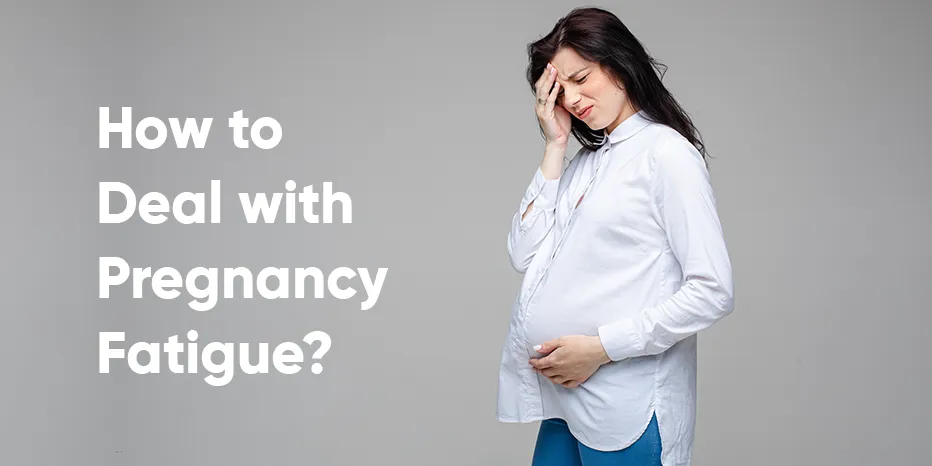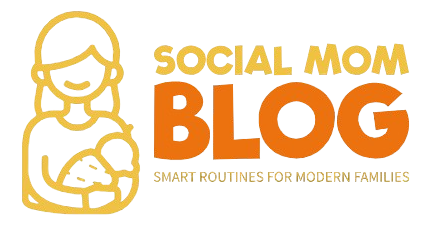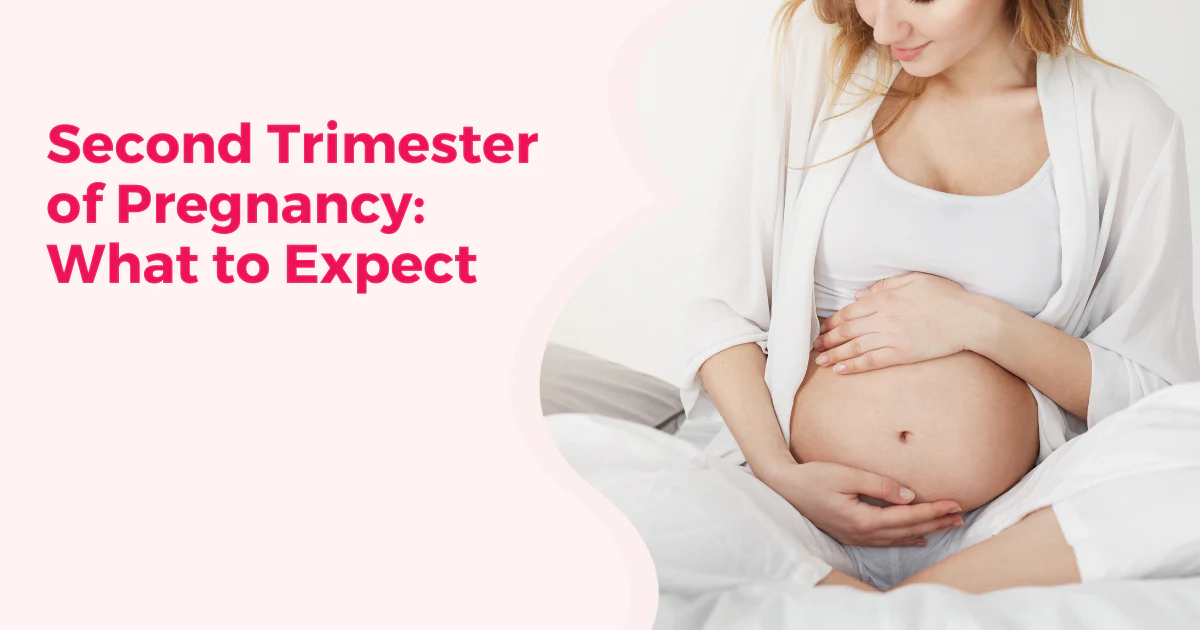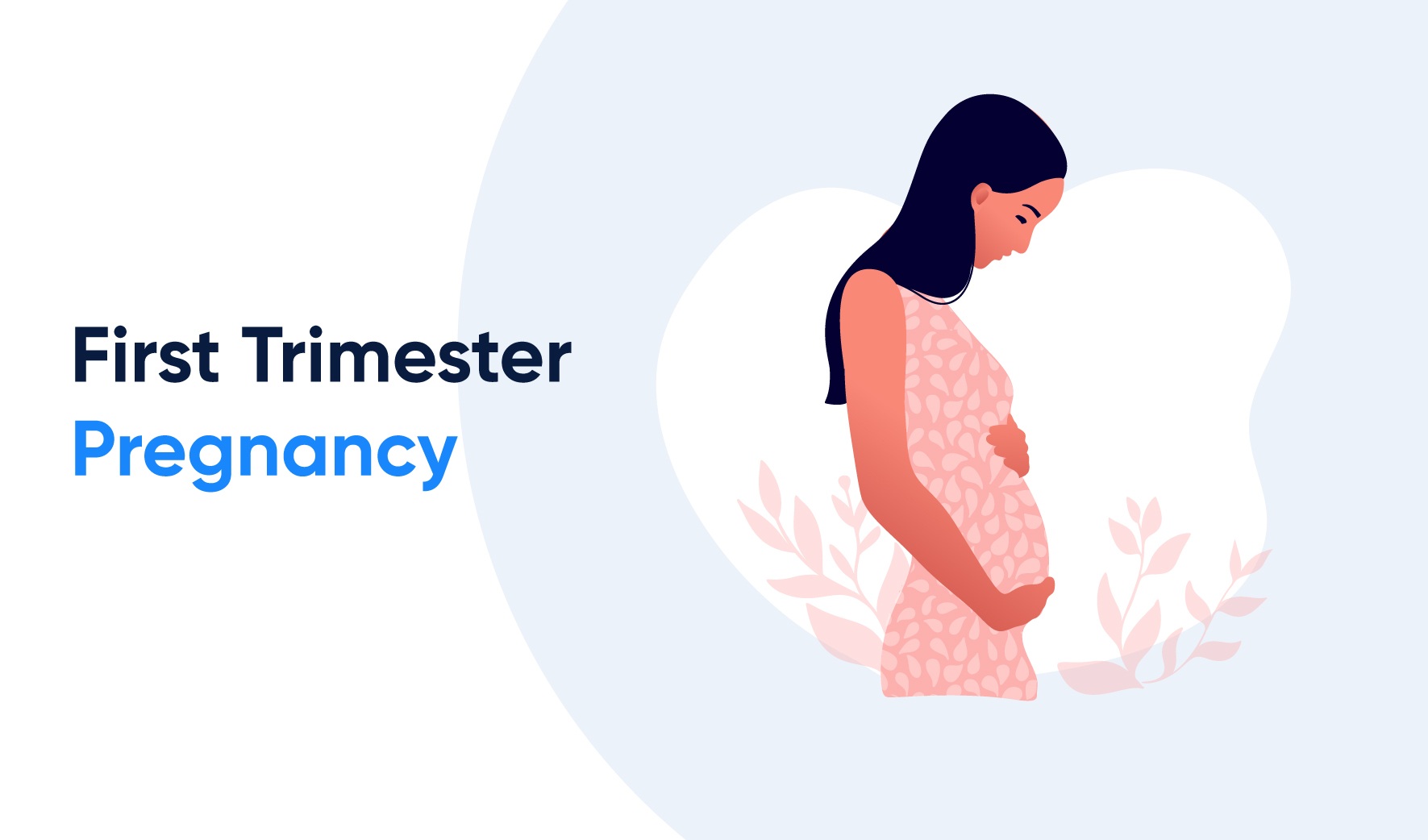If you’ve ever felt like you’re tired all the time during pregnancy, you’re not alone. This isn’t your average pregnancy tiredness; many women describe it as a ‘bone-deep tiredness’ that lingers no matter how much you sleep. This unique pregnancy fatigue is one of the most common symptoms, especially in the first and third trimesters.
So, why does pregnancy fatigue happen? It’s a powerful combination of major hormonal shifts, a huge increase in blood volume, and the mental and emotional load of growing a human. It’s real, and it’s okay to feel it.
The good news? While this exhaustion can be overwhelming, there are safe, practical strategies to manage it. This article will walk you through trusted fatigue pregnancy remedies — from nutrition and rest to movement and mindset — with insights backed by medical experts like your OB-GYN.
For a broader look at caring for yourself during and after pregnancy, don’t miss our guide to Pregnancy and Postpartum Wellness.
✨ Remember: You’re not lazy — your body is working overtime to create new life.
✨ Key Takeaways
To cope with pregnancy fatigue, prioritize rest with naps and early bedtimes, stay hydrated, eat small, balanced meals with iron-rich foods, and incorporate gentle exercise like walking, while also asking for help with tasks and listening to your body’s limits to manage energy and stress.
Pregnancy Fatigue is Different and Normal
Feeling unusually tired during pregnancy is completely normal. Your body is working hard to support your baby, and factors like hormonal changes, increased blood volume, and nutritional demands can drain your energy. Staying hydrated, eating balanced meals with protein, whole grains, fruits, vegetables, and iron-rich foods helps support your body through these changes.
Fatigue Follows a Predictable Pattern
Pregnancy fatigue often comes in waves—most intense during the first trimester, easing in the second, and sometimes returning in the third. Low iron levels or dehydration can make fatigue worse, which is why small, frequent meals and steady water intake throughout the day are essential to keep your energy and blood sugar stable.
Rest is Non-Negotiable
Quality rest is essential during pregnancy. Aim for 7–9 hours of sleep at night, go to bed earlier when possible, and include short daytime naps of 15–20 minutes. Creating a cool, dark, and quiet sleep environment and sleeping on your side—preferably the left—with supportive pillows can greatly improve comfort and sleep quality.
Lifestyle Changes Can Help
Gentle movement like short walks, swimming, or prenatal yoga can boost energy and improve sleep. Take regular breaks, elevate your feet, practice deep breathing, and don’t hesitate to delegate chores or errands. Adjusting expectations and allowing yourself to slow down is not a weakness—it’s part of healthy pregnancy care.
Know When to Call Your Doctor
While fatigue is common, extreme or persistent exhaustion isn’t something to ignore. Contact your OB/GYN if fatigue doesn’t improve with rest, feels overwhelming, or continues into the second trimester, as it may indicate an underlying issue such as iron-deficiency anemia or another medical concern.
What Is Pregnancy Fatigue?
Pregnancy fatigue is one of the most common symptoms women experience, especially in the first and third trimesters. Unlike regular tiredness, it’s often described as a deep, overwhelming exhaustion — the kind that lingers even after a full night’s sleep. Many women call it a “bone-deep tiredness” that makes even simple daily tasks feel draining.
This unique pregnancy tiredness is the result of your body working overtime to support a growing baby. It’s not just about needing more rest — it’s a full-body response to the demands of pregnancy. From the earliest weeks, your energy is being redirected toward building the placenta, supporting increased blood flow, and preparing your body for the months ahead.
If you find yourself napping more often, struggling to stay awake in the afternoons, or feeling constantly worn out, you’re not alone. Fatigue in pregnancy is both normal and expected — and while it can be frustrating, it’s also a sign that your body is doing exactly what it needs to do.
What Causes Fatigue in Pregnancy?
Pregnancy fatigue isn’t just “normal tiredness” — it’s the result of multiple changes happening inside your body at once. From powerful hormonal shifts to the physical strain of carrying extra weight, exhaustion is one of the most common and persistent pregnancy symptoms. Let’s break down the key reasons why fatigue shows up during different stages of pregnancy.
Hormonal Shifts & Early Pregnancy Exhaustion
Fatigue in early pregnancy often feels overwhelming, with many women reporting extreme tiredness in early pregnancy that can make daily routines feel impossible. According to the American College of Obstetricians and Gynecologists (ACOG), one major reason is the surge of progesterone — a hormone that supports the uterine lining but also acts as a natural sedative, increasing the urge to sleep. Rising estrogen and relaxing levels also affect energy, digestion, and mood, contributing to sluggishness.
On top of these physical shifts, early pregnancy often brings emotional stress. Adjusting to the news, attending your first prenatal appointments, and starting to prepare mentally for the journey ahead can drain both mental and physical energy. It’s a lot to process, and it’s normal to feel worn out.
👉 For more on this early phase, explore our guide: What to Expect in First Trimester of Pregnancy.
Physical Demands on the Body
By the time you’re well into pregnancy, the fatigue from pregnancy is no longer just about hormones — it’s about the intense physical demands your body faces daily. Carrying a growing baby is often compared to “running a marathon every day” because your body is constantly working harder to support two lives.
Your blood volume increases by up to 50%, forcing your heart to beat faster and work harder. At the same time, changes in glucose regulation and the effects of morning sickness (including dehydration and nutrient loss) can amplify exhaustion.
Another key factor is iron deficiency. Low iron levels can lead to anemia, which starves your body and baby of oxygen, leaving you feeling weak and lightheaded. This is why OB-GYNs often check iron status, thyroid function, and screen for gestational diabetes when fatigue becomes extreme. Prenatal vitamins with iron are essential, but sometimes supplementation or additional treatment is needed.
Nourishment now connects directly to your baby’s future health. For more on how feeding continues after birth, check out our Feeding Chart for Newborns and Babies.
Trimester-Specific Fatigue Patterns
While tiredness can hit at any time, pregnancy fatigue follows a fairly predictable pattern:
- First trimester: Hormonal shifts (especially progesterone) create exhaustion that feels all-consuming.
- Second trimester: Many women notice a temporary energy boost — sometimes called the “honeymoon phase” — when nausea subsides and sleep improves.
- Third trimester: Pregnancy fatigue in the third trimester often returns full force. The sheer physical weight of the bump, combined with insomnia, restless legs, frequent urination, and sleep disruptions, makes third trimester fatigue particularly challenging. Some women also experience sleep apnea due to increased airway pressure.
Each stage of pregnancy has its unique challenges, but knowing these patterns helps you prepare and manage your energy better.
Safe & Practical Ways to Cope with Pregnancy Fatigue

Feeling tired all the time during pregnancy can make even the simplest tasks feel overwhelming. While rest is essential, there are safe and effective ways to start coping with pregnancy fatigue so you can function and even feel a little more energized. Here are the best strategies experts recommend.
How to Beat Pregnancy Fatigue Step by Step
🛌 Prioritize Rest Without Guilt
Rest is not laziness — it’s part of healthy pregnancy care. If you’re exhausted, short, restorative naps of 20–40 minutes can make a big difference without leaving you groggy. Sleep experts and many OB-GYNs emphasize the importance of consistent nighttime sleep cycles, aiming for the same bedtime and wake-up time each day to regulate your body’s rhythm.
Pregnancy pillows can provide much-needed support for your back, hips, and bump, helping improve sleep quality. Remember: giving yourself permission to rest is vital — your body is literally building another life.
👉 After delivery, rebuilding strength through mindful rest is equally important. See our guide: Best Postpartum Yoga Poses to Heal.
🥗 Eat Smart to Boost Energy
What and how you eat plays a huge role in energy levels. Choosing foods that fight fatigue in pregnancy can prevent the mid-day crash. Aim for small meals every 3–4 hours with a balance of complex carbs, lean protein, and healthy fats to keep blood sugar steady.
- Greek yogurt with berries
- A boiled egg with whole-grain toast
- Handful of nuts or trail mix
- Apple slices with almond butter
Staying hydrated is equally critical. Dehydration can worsen fatigue, so aim for plenty of water throughout the day. Some women also benefit from coconut water or electrolyte-rich drinks. Prenatal vitamins with Vitamin B6, magnesium, and folate also help fill nutritional gaps.
👉 The benefits of nutrient-dense eating don’t stop after birth. See how it supports milk production in our guide: How to Increase Breast Milk Supply.
🚶 Gentle Movement to Recharge
When you’re wiped out, exercise may feel impossible, but light movement is actually one of the best pregnancy fatigue remedies. Short walks, gentle stretching, and prenatal yoga release endorphins — natural “feel-good” chemicals that lift mood and increase energy. They also improve circulation and promote better sleep at night.
The ACOG (American College of Obstetricians and Gynecologists) recommends at least 150 minutes of light to moderate exercise per week, but the key is to listen to your body. Avoid overexertion, and always check with your OB-GYN before starting or changing your activity.
👉 For more guided movement, see Pelvic Floor Exercises Postpartum.
💊 Supplements & Medical Support
Sometimes extreme fatigue in pregnancy isn’t just a normal symptom — it can signal an underlying issue. Pregnancy-safe vitamins for energy such as prenatal supplements, iron, magnesium, and Vitamin B6 are often recommended to support both mother and baby.
If you still feel exhausted despite rest, nutrition, and movement, talk to your OB-GYN. Conditions like iron-deficiency anemia, thyroid disorders, or gestational diabetes can all cause severe fatigue and may require treatment. According to ACOG, checking iron levels and thyroid function is a standard part of prenatal care when fatigue is extreme.
👉 For a full view on caring for your health before and after birth, see our guide: Pregnancy and Postpartum Wellness.
👶 Get Your Other Children Involved
If you’ve already got little ones running around, it’s no wonder you’re wiped out. Trying to keep up with them while growing a new baby is seriously hard work. It might feel impossible to get a minute to yourself, but it’s super important to make your rest a priority.
Try talking to your kids in a simple, fun way. Tell them, “Mommy is feeling extra sleepy because a little brother or sister is growing in my tummy, and it’s a lot of work!” Once they understand, you can turn it into a game. Ask them to be your little helpers with small chores or spend more time on quiet activities together. Think reading books, building with LEGOs, or having a “Doctor’s Visit” where you’re the patient who needs lots of naps.
If you’re lucky enough to have a quiet time or naptime for them, use that window to rest yourself. You deserve it!
Real Moms Share: What Fatigue Feels Like
Pregnancy fatigue is unlike anything else — and on forums like Reddit, many women say it doesn’t just feel like being sleepy, but like a “bone-deep tired” that no amount of rest can fix. Others describe it as a constant “hungover feeling”, where even getting dressed or walking up stairs feels like running a marathon. These stories from real moms show just how different fatigue while pregnant can look for everyone.
Some women report the worst fatigue between weeks 6 and 10, when hormonal changes and early pregnancy adjustments are at their peak. One mom described it as needing naps just to get through workdays, saying she could “sleep forever and still wake up exhausted.”
For others, relief comes during the second trimester. Energy returns slowly, and the heavy exhaustion eases, allowing them to feel more like themselves again. Still, not everyone gets that “honeymoon phase.” Many moms shared that extreme fatigue in pregnancy lasted throughout — sometimes easing slightly, but often returning with full force in the third trimester as sleep gets disrupted by discomfort, frequent bathroom trips, and baby’s movements.
The truth? There’s no single timeline for pregnancy tiredness, and comparing yourself to others only adds stress. These voices remind us that fatigue is a normal part of the journey — not a personal weakness. It’s your body’s way of signaling the incredible work it’s doing.
👉 Building emotional resilience through shared experiences matters. Learn how these early struggles connect with nurturing your baby in our guide to Holistic Infant Development.
When Fatigue Isn’t “Normal”?
While exhaustion is a standard part of pregnancy, certain symptoms can signal an underlying condition that requires medical attention. If your extreme fatigue in pregnancy is accompanied by other red flags, it’s not something to just “push through.” It’s a sign to call your OB-GYN.
Understanding the difference between normal tiredness and a potential health issue is one of the most important pregnancy fatigue remedies you can employ.
Red Flags to Watch For
According to guidelines from the ACOG (American College of Obstetricians and Gynecologists) and the CDC, you should contact your healthcare provider if your fatigue is paired with any of the following:
- Dizziness, Fainting, or Pale Skin: These can be strong indicators of anemia, a common condition in pregnancy where your iron levels are too low to carry sufficient oxygen to you and your baby.
- Shortness of Breath ( disproportionate to mild activity) or a Racing Heartbeat: This can also point to anemia or heart-related issues.
- Severe Insomnia or an Inability to Sleep Despite Exhaustion: While poor sleep is common, an utter inability to sleep can be linked to high anxiety, prenatal depression, or other conditions.
- Feelings of Hopelessness, Profound Sadness, or an Inability to Find Joy: This is a key sign of prenatal depression, a medical condition that is treatable and deserves care.
- Extreme Thirst, Frequent Urination, and Blurred Vision: This trio of symptoms can be a sign of gestational diabetes, which affects how your body processes sugar for energy.
- Unexplained Weight Changes, Sensitivity to Cold, or Severe Muscle Weakness: These can be symptoms of a thyroid disease like hypothyroidism, which can develop during or after pregnancy.
Your Action Plan
Your body is working hard, and your well-being is the priority. Always err on the side of caution. Open communication with your OB-GYN is essential. They can perform simple blood tests to check for anemia, thyroid disease, and gestational diabetes, and provide compassionate screening for prenatal depression.
Managing your health during pregnancy is about listening to your body’s signals. This focus on well-being often continues after birth, as many mothers seek to feel comfortable and confident in their post-baby bodies through various means, from nutrition and exercise to procedures like Liposuction After Pregnancy.
Final Thoughts
If you’re struggling with pregnancy tiredness, remember this: your body is doing the hardest work it’s ever done. Handling pregnancy fatigue isn’t about “pushing through” — it’s about finding the right balance between rest and gentle movement, nourishing your body, and giving yourself grace.
Fatigue in pregnancy is both normal and temporary, but that doesn’t make it easy. Talk with your OB-GYN if you ever feel unsure, and don’t hesitate to ask for help from your partner, family, or friends. Delegating tasks and letting go of guilt isn’t weakness — it’s wisdom.
Most importantly, listen to your body. Some days, rest will be the best remedy. Other days, a short walk or a healthy snack may give you the boost you need. Trust that this season will pass, and you are stronger than you feel right now.
Pregnancy Fatigue FAQs
Pregnancy fatigue is most common in the first trimester (weeks 6–12) due to hormonal changes, and again in the third trimester as your body carries extra weight and sleep is disrupted.
Many women notice more energy during the second trimester (weeks 13–27). However, fatigue often returns in the third trimester as the physical demands of pregnancy increase.
Extreme fatigue may signal conditions like anemia, thyroid issues, gestational diabetes, or prenatal depression. Red flags include dizziness, fainting, shortness of breath, severe insomnia, or persistent hopelessness. Always check with your OB-GYN if these occur.
Short naps, consistent sleep, nutrient-dense meals, hydration, light exercise, and prenatal vitamins can help. Safe strategies include small frequent meals, walking, and pregnancy pillows for comfort.
Women often describe it as a “bone-deep tiredness” or feeling hungover without drinking — a type of exhaustion that doesn’t fully go away with extra sleep.
Fatigue is often worst around weeks 6–10 in the first trimester and again in the last few weeks before delivery, when sleep and comfort are most disrupted.
Yes. Along with physical tiredness, hormonal shifts and emotional stress can make you feel unmotivated. This is normal, but if it feels overwhelming or persistent, check in with your healthcare provider.
You’re typically most tired during the first trimester, around weeks 6-9, due to rapid development and hormone surges (progesterone), and again in the third trimester as your body carries extra weight and sleep becomes disrupted, though many experience an energy boost in the second trimester. Fatigue in the first trimester stems from your body working hard to build the placenta, while later fatigue is from the physical demands and poor sleep from a large belly and discomforts.
To boost energy during pregnancy, focus on iron-rich foods (lean meats, spinach, beans), balanced meals with protein & complex carbs (whole grains, fruits), staying hydrated, short rests, light exercise like walking, magnesium-rich foods (almonds), and ensuring your prenatal vitamin has key nutrients like iron, B vitamins, and Vitamin D. Avoid excessive sugar, but a moderate amount of caffeine (under 200mg/day) in things like Alani Nu might be okay if your doctor approves.
References
- National Institutes of Health, What Are Some Common Signs of Pregnancy? Opens a new window, January 2017. | Show in the article
- American Academy of Family Physicians, Sleep and Pregnancy Opens a new window, August 2022. | Show in the article
- Mayo Clinic, Sleep During Pregnancy: Follow These Tips Opens a new window, May 2021. | Show in the article
- Insomnia During Pregnancy, November 2022.
- Sleeping Positions During Pregnancy, March 2021.
- Constipation During Pregnancy, October 2022.
- Morning Sickness and Nausea During Pregnancy, June 2021.
- Your Guide to the Third Trimester of Pregnancy, October 2021.
- National Institutes of Health, National Library of Medicine, Daily Sleep and Fatigue Characteristics in Nulliparous Women During the Third Trimester of Pregnancy, February 2012.
- National Institutes of Health, National Library of Medicine, Fatigue in Pregnancy, February 2019.
- National Health Service, Tiredness and Sleep Problems, February 2021.




